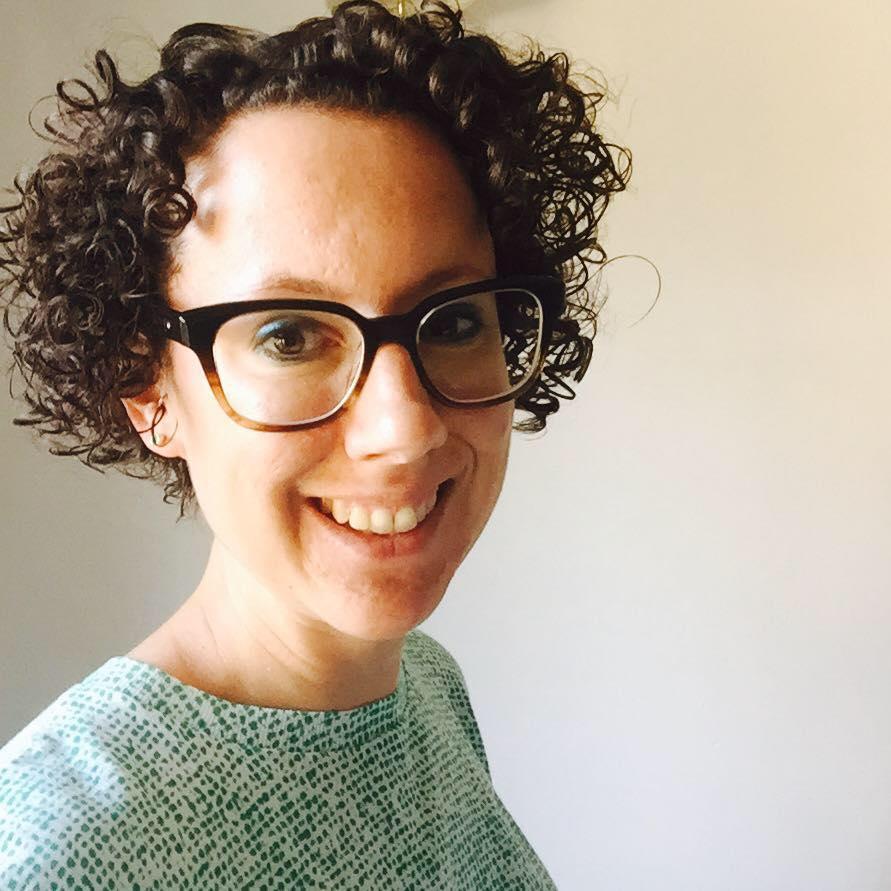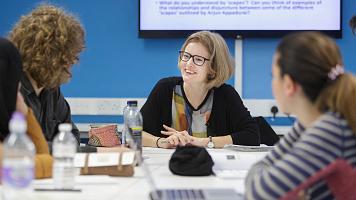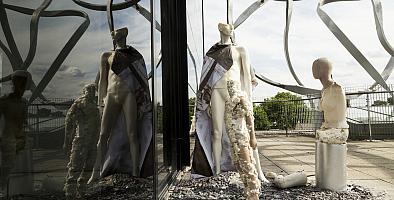MSc
Social Research
Content navigation menu
Why study MSc Social Research at Goldsmiths
The MSc Social Research is an advanced degree in social scientific methodology and is recognised by the Economic and Social Research Council (ESRC) as a research training degree.
- It is suitable for those who wish to prepare for PhD research, as well as those seeking to increase key employability skills in qualitative fieldwork, quantitative data management, and data analytics.
- As a student on this programme you’ll draw upon a wide variety of expertise from within the Centre for Urban and Community Research, the Methods Lab, and the Department of Sociology more widely, which has been rated top 10 in the UK in the QS World University Rankings 2023.
- Based in London in an incredibly culturally diverse area, you will have direct access to one of the most stimulating fieldwork areas through which experience will be acquired conducting ‘live sociology’. This experience combined with undertaking a rigorous curriculum means that upon successful completion of the MSc all students will be proficient in preparing, designing, undertaking, and presenting advanced level social research suitable for all types of audiences.
- Throughout the degree you will undertake rigorous training in both qualitative and quantitative research designs and techniques.
Contact the department
If you have specific questions about the degree, contact Mi Young Ahn.
Length
1 year full-time or 2 years part-time
Fees
Home - full-time: £10350
Home - part-time: £5175
International - full-time: £20460
Department
Research training
Key research techniques covered during the MSc Social Research include:
- Conducting interviews
- Ethnographic research
- Discourse analysis
- Visual sociology
- Computer-assisted qualitative data analysis
- Working with quantitative comparative data
- Multiple regression analysis
- Multi-level modelling
- Longitudinal modelling
- Structural Equation Modelling
- Latent Class Analysis
Thinking ahead
We encourage students to use their MSc degree as a platform for PhD level research. Goldsmiths is part of the of the South East Network for Social Sciences (SeNSS) through which students can apply for fully-funded ESRC PhD studentships.
For those looking to refine particular research skills to better understand groups and audiences, staff on the programme have many years’ experience working with charities, government agencies, and private sector companies, and can advise on research techniques and further training courses to fit bespoke needs.
What you'll study
Compulsory modules
You'll complete the following modules:
| Module title | Credits |
|---|---|
| Quantitative Research Methods | 30 credits |
| Advanced Quantitative Research Methods | 30 credits |
| Methodology Now | 30 credits |
| Dissertation | 60 credits |
Optional modules
You'll also take 30 credits of optional modules, chosen from a list provided annually by the Department of Sociology.
How you'll be assessed
Assessment consists of coursework, extended essays, reports, presentations, practice based projects or essays/logs, group projects, and reflective essays.
Careers
You will gain advanced methodological knowledge within the social sciences coupled with hands-on experience working with a range of research techniques and software for data analysis. This grounding offers an advantageous position from which to apply for PhD funding or to move into careers which require advanced research skills and knowledge.
A number of students that have completed the MSc in Social Research have successfully acquired ESRC funding for doctoral level studies, while others have entered the public and third/NGO sector as well as the Civil Service ‘fast track’ scheme for government social research.
Entry requirements
You should have (or expect to be awarded) an undergraduate degree of at least upper second class standard in a relevant/related subject.
You might also be considered for some programmes if you aren’t a graduate or your degree is in an unrelated field, but have relevant experience and can show that you have the ability to work at postgraduate level.
International qualifications
We accept a wide range of international qualifications. Find out more about the qualifications we accept from around the world.
If English isn’t your first language, you will need an IELTS score (or equivalent English language qualification) of 6.5 with a 6.5 in writing and no element lower than 6.0 to study this programme. If you need assistance with your English language, we offer a range of courses that can help prepare you for postgraduate study.
Fees and funding
Annual tuition fees
These are the PG fees for students starting their programme in the 2024/2025 academic year.
- Home - full-time: £10350
- Home - part-time: £5175
- International - full-time: £20460
If your fees are not listed here, please check our postgraduate fees guidance or contact the Fees Office, who can also advise you about how to pay your fees.
It’s not currently possible for international students to study part-time under a student visa. If you think you might be eligible to study part-time while being on another visa type, please contact our Admissions Team for more information.
If you are looking to pay your fees please see our guide to making a payment.
Funding opportunities
Explore the Goldsmiths scholarships finder to find out what funding you may be eligible for.
If you are a UK student you may be eligible for a postgraduate loan.
Meanwhile our Careers Service can also offer advice on finding work during your studies.
Paying your fees
Find out about paying your tuition fees.
Additional costs
In addition to your tuition fees, you'll be responsible for any additional costs associated with your course, such as buying stationery and paying for photocopying. You can find out more about what you need to budget for on our study costs page.
There may also be specific additional costs associated with your programme. This can include things like paying for field trips or specialist materials for your assignments. Please check the programme specification for more information.
How to apply
You apply directly to Goldsmiths using our online application system.
To complete your application, you will need to have:
- Details of your academic qualifications
- The email address of your referee who we can request a reference from, or alternatively a copy of your academic reference
- Copies of your educational transcripts or certificates
- A personal statement
You'll be able to save your progress at any point and return to your application by logging in using your username/email and password.
When to apply
We accept applications from October for students wanting to start the following September.
We encourage you to complete your application as early as possible, even if you haven't finished your current programme of study. It's very common to be offered a place that is conditional on you achieving a particular qualification.
Late applications will only be considered if there are spaces available.
If you're applying for funding, you may be subject to an earlier application deadline.
Selection process
As part of the admissions process, you may be offered an informal advisory meeting with the Programme Convenor.
Further guidance
Read our guide to applying for a postgraduate degree at Goldsmiths.








